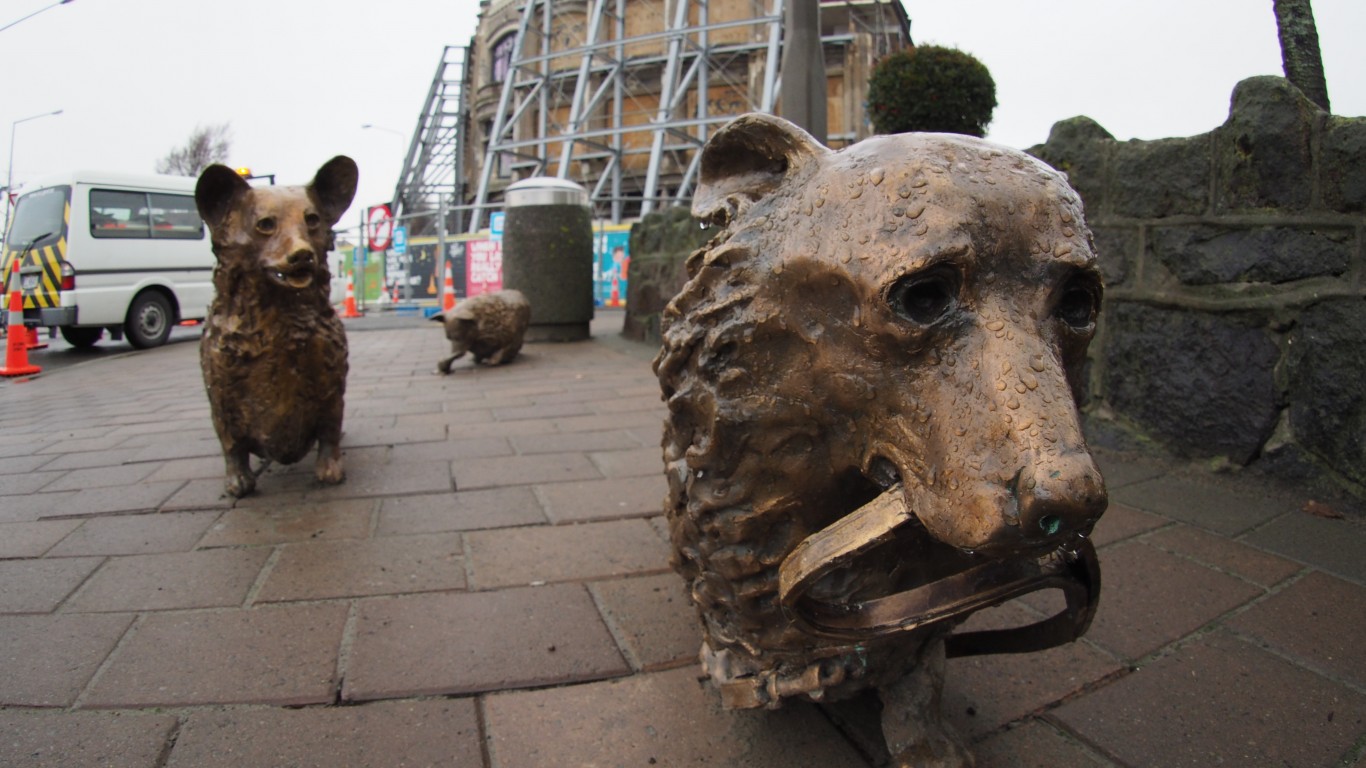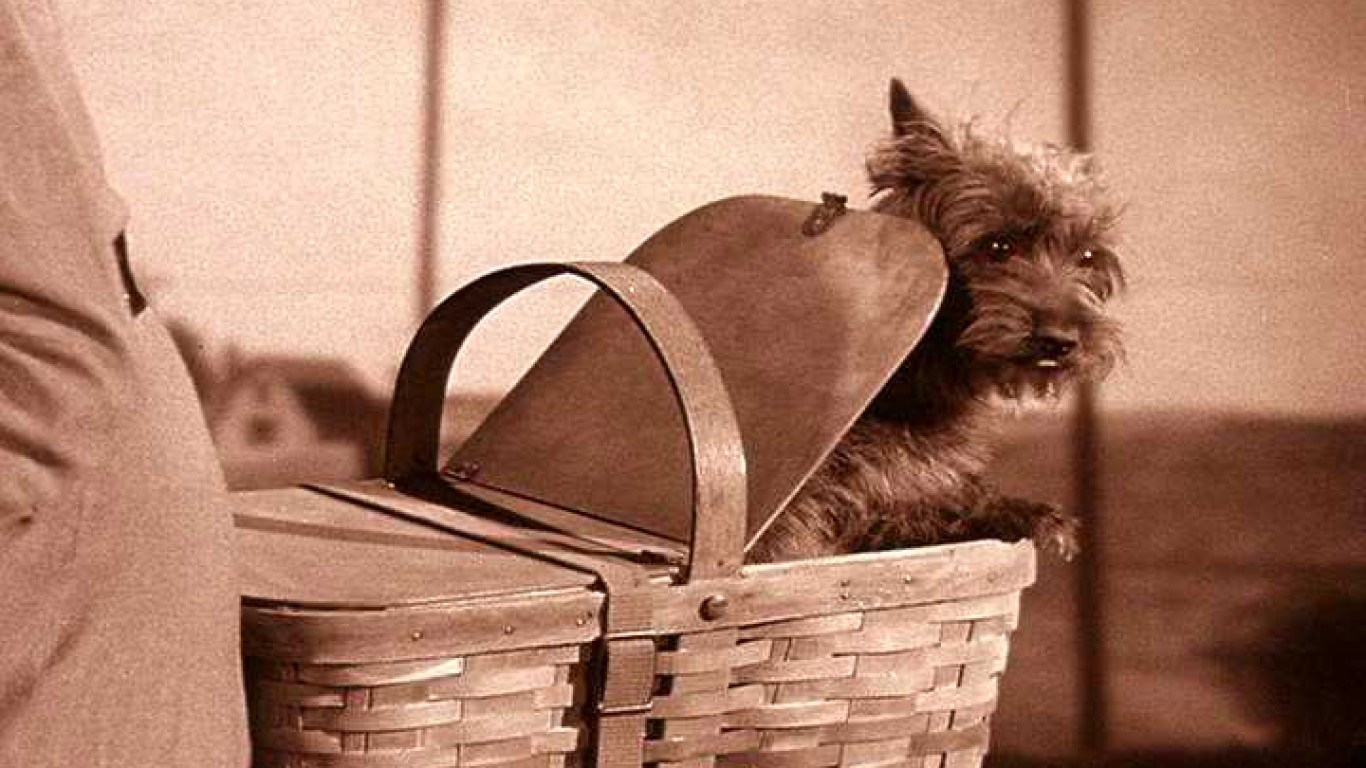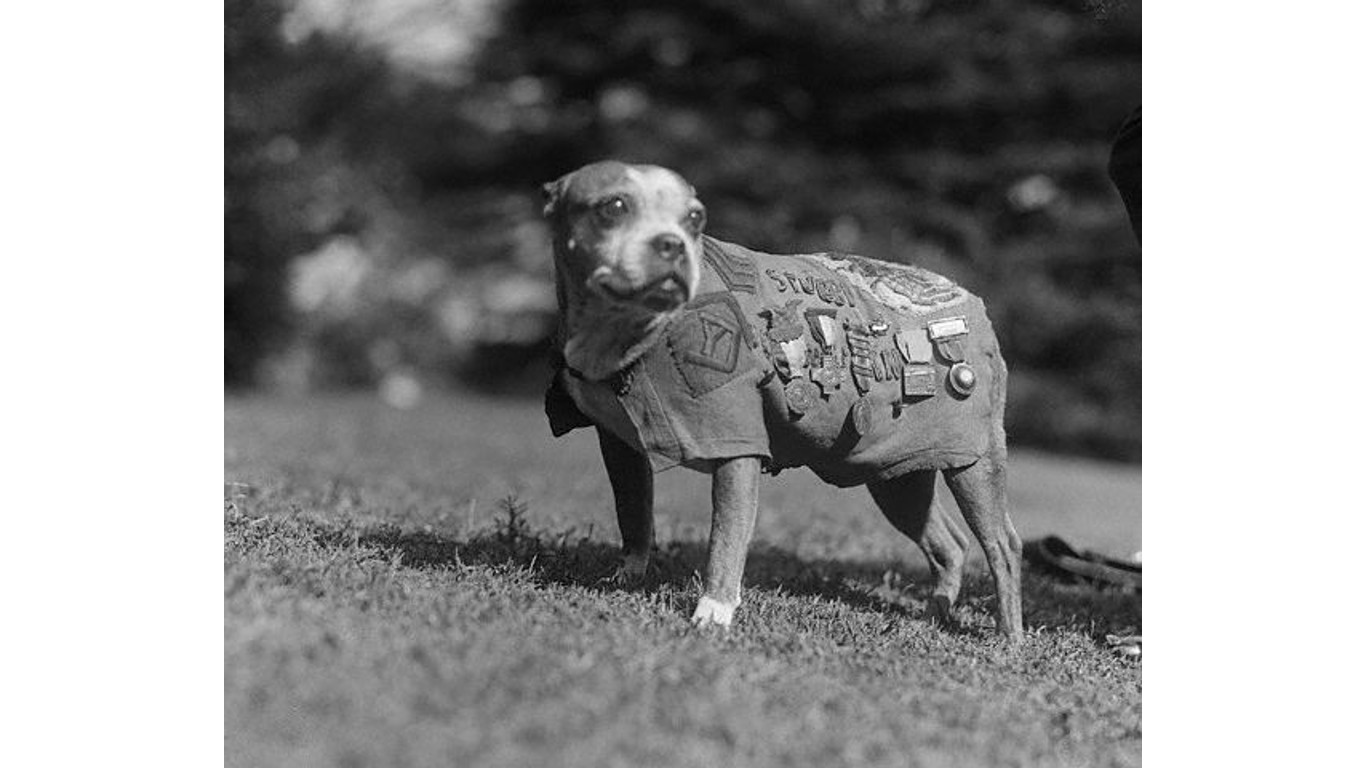
Creating a manageable list of famous dogs is no easy task. Even before dogs became internet famous, there was a lengthy roster of canines who leaped into our imagination, making us laugh and cry — just like some of the best family-friendly dogs — inspiring us and guiding us with their exploits, real and fictional.
Complicating the matter even more is that for many of us, our notions of famous dogs are probably at least partially informed by how we see and feel about our unsung daily companions — the Skippys, the Taffys, the Stormys, the Gingers, and the Fritzys with whom we share our lives. We wish they’d sat with us forever, but at least some dogs stay puppies for a very long time.
The dogs who capture the eyes of the world and stick in our imaginations and in our collective memory are likely to share some of the attributes we love most about our pets. These are the figures we imagine our own dogs would be if the opportunity arose. They’d undoubtedly show the same valor, empathy, charm, and yes, money-making ability, as their more renowned kin presented here.
To determine the most famous dogs of all time, 24/7 Tempo reviewed dogs of fame throughout history, including both real and fictional animals. These dogs are featured in movies, songs, stories, news articles, television, advertising, and more.
Click here to see the most famous dogs of all time
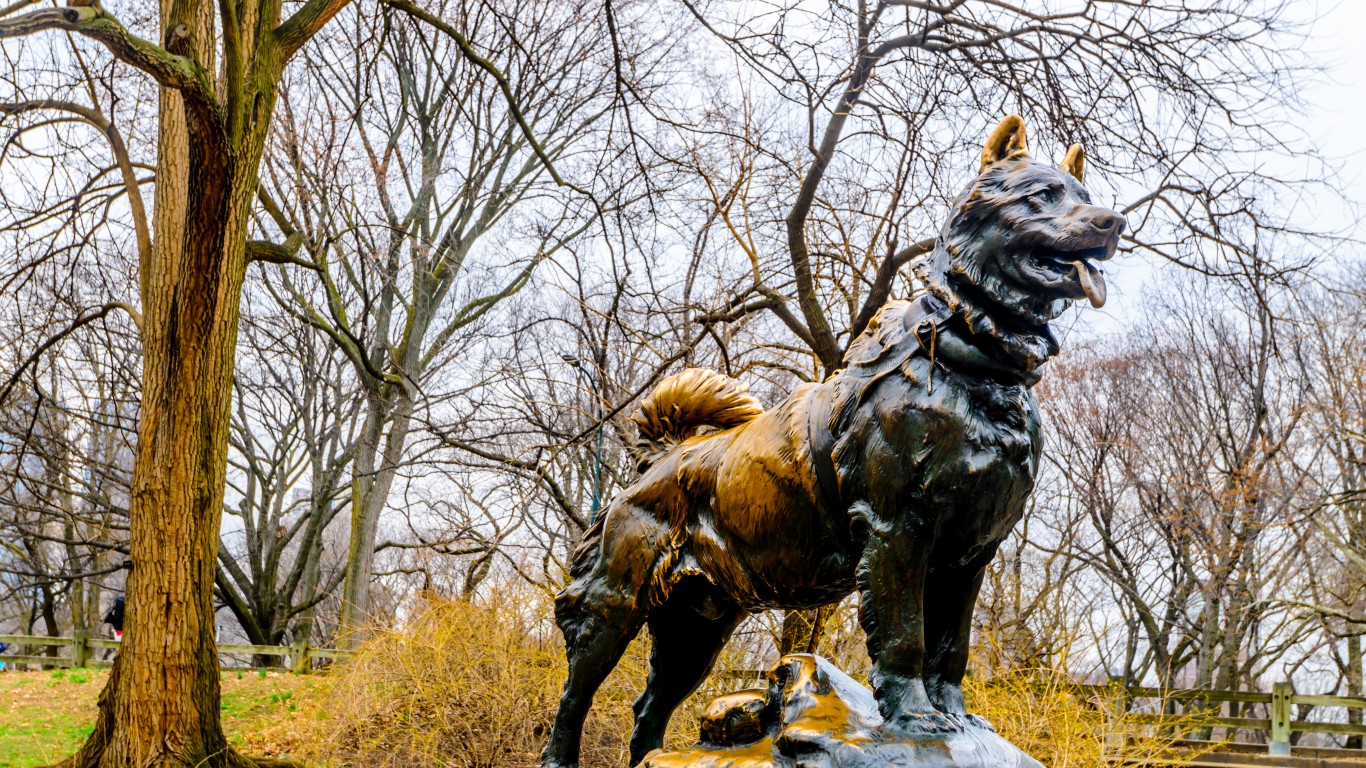
Balto
The year 1925 began with very little to celebrate in Nome, Alaska, where a diphtheria epidemic raged. Life-saving serum was available in Anchorage, but there was no simple way to deliver it to the isolated village, almost 1,000 miles away. Dog sleds were the only solution, and more than 150 animals and their drivers endured blizzards, 40-below temperatures and vicious wind chills during their journey. The Siberian husky Balto led the first team to arrive in Nome carrying the precious medicine; later that year his achievement was recognized with a monument in New York’s Central Park. The sled dogs’ heroic performance is honored each year with Alaska’s annual Iditarod Trail Sled Dog Race, which is run on some of the same trails.
[in-text-ad]
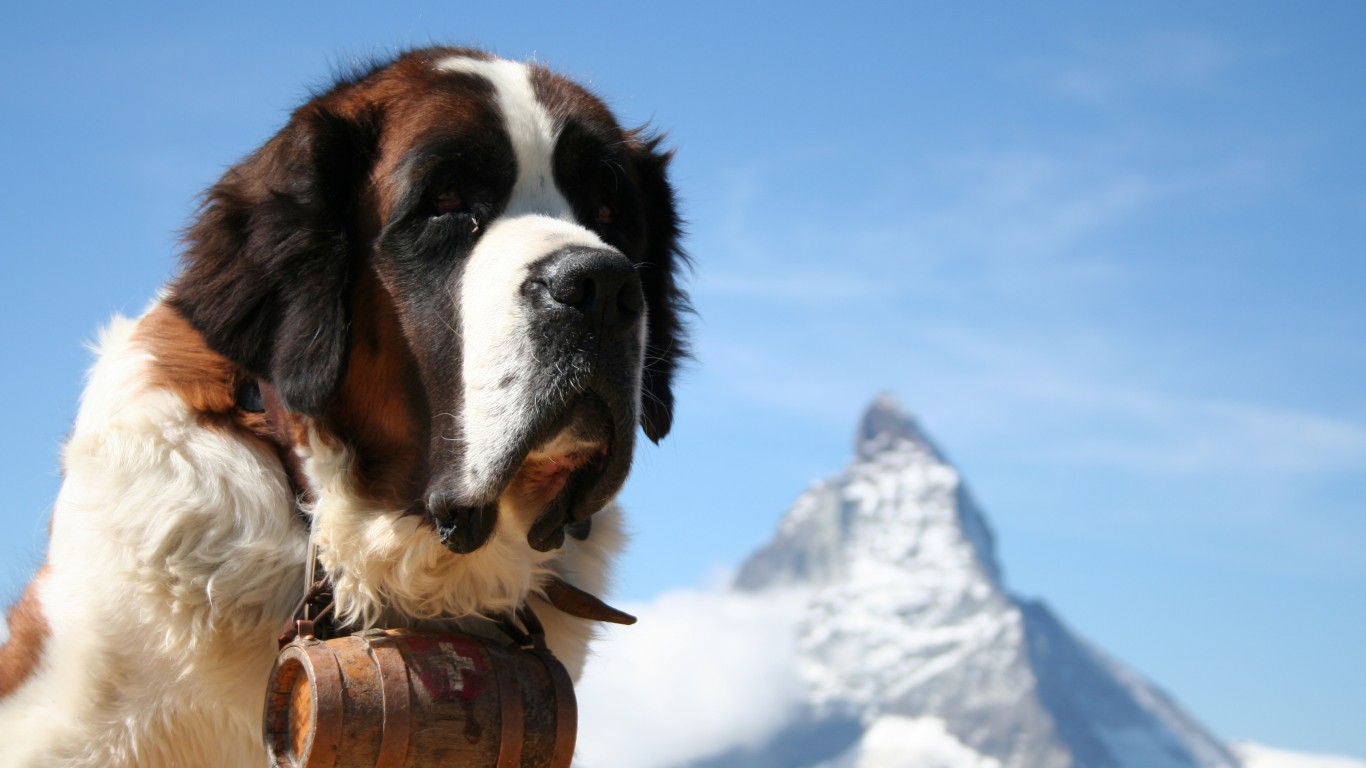
Barry
For hundreds of years, the sturdy dogs raised by the monks at Great St. Bernard Hospice in Switzerland assisted countless travelers making their way through the snowy St. Bernard Pass in the Western Alps. Between about 1670 and 1897, the dogs, which came to be known as St. Bernards, were credited with saving more than 2,000 lives. One animal in particular, Barry, did more than his share, saving more than 40 lives between 1800 and 1812. To this day, visitors to the Natural History Museum in Berne can see Barry’s remains on exhibit.

Beethoven
St. Bernard dogs may be known for saving lives, but they’re also pretty good at generating laughs and warming hearts. Case in point: Beethoven, the star – and namesake – of a series of much-loved movies. The first one, 1992’s “Beethoven,” earned a spot on several lists of all-time best dog movies, including Us Weekly and USA Today. The sequel, “Beethoven’s 2nd”, was also a popular and financial success ($118-plus million, compared with the original’s $147-plus million); the two big-screen hits were followed by several made-for-video features.

Bolt
John Travolta has been in some seriously popular films. Think “Pulp Fiction,” the ground-breaking, bucks-raking indie film that grossed more than $200 million and earned him a second Oscar nomination (Travolta’s first was for his star turn in the fan favorite “Saturday Night Fever”). Travolta extended his cinematic winning streak into the 21st century by lending his voice to the top-grossing dog film of all time: “Bolt,” a sweet road movie that pulled in $310 million.
[in-text-ad-2]
Buddy
Buddy, the first seeing eye dog, came to the U.S. in 1928. He had been trained in Switzerland by Dorothy Harrison Eustis for Morris Frank, a young blind man. Buddy demonstrated his skills in front of a crowd of news reporters by safely guiding Frank across busy Manhattan intersections. Frank founded the Seeing Eye Guide Dog School in 1929. Celebrating its 90th anniversary in January 2019, the school has provided guide dogs for more than 17,000 people who are blind or visually impaired. Astonishingly, tuition rates have not changed since the 1930s: $150 for the first dog, $50 for each subsequent dog, and just $1 for veterans of the military.
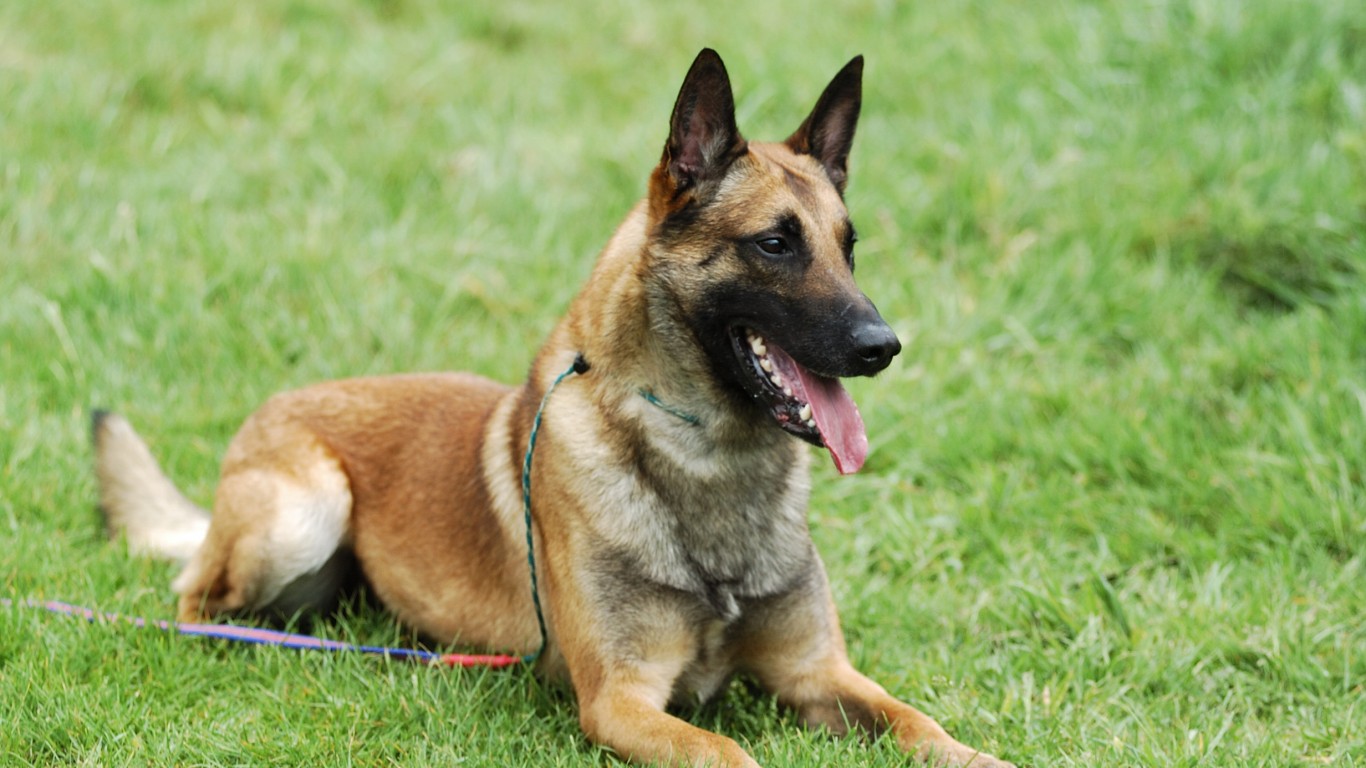
Cairo
Cairo, Time magazine’s Animal of the Year for 2011, earned his place in history as part of SEAL Team Six, which took down Osama bin Laden. His reported role in the mission was sniffing out explosives or possibly finding a hidden room. The Belgian Malinois was lowered into the compound from a helicopter, and along with a translator and four SEALs, he closed off the perimeter of the house while other SEALs went inside. Later, when the SEALs visited the White House, President Obama asked to meet the valiant dog, and had a chance to pet him.
[in-text-ad]
Checkers
Politicians make a lot of speeches, and lots of politicians own dogs. But it’s rare that the two come together as they did in one famous political speech. Richard Nixon, a vice presidential candidate at the time, delivered his famous Checkers speech in 1952, denying financial improprieties. But he declared he would keep one gift: the black and white cocker spaniel his daughter had named Checkers. He became an instant celebrity and some even say it was he who saved Nixon’s political career at the time.
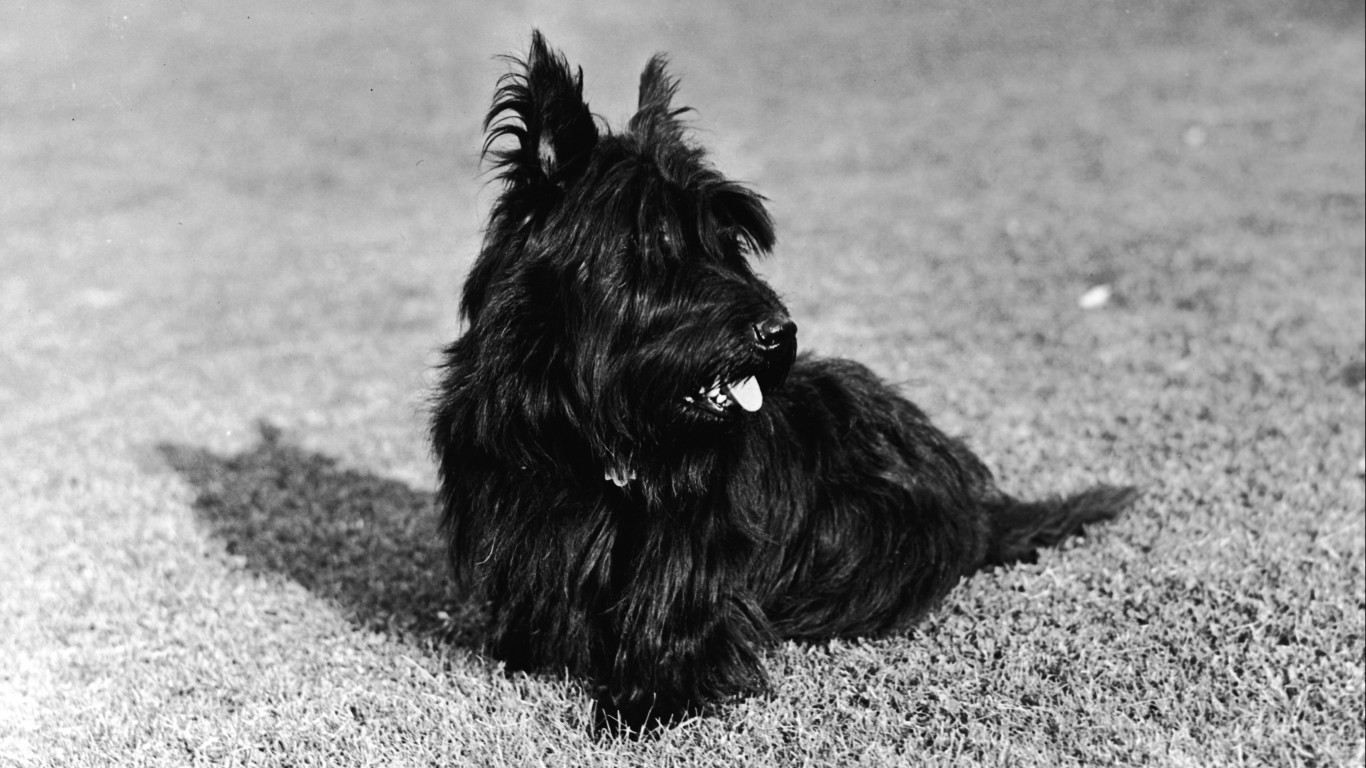
Fala
President Franklin D. Roosevelt’s dog Fala is the only pet to be rendered in a presidential monument in Washington DC. The Scottish terrier went everywhere with his owner, and was something of a media darling, appearing in newspapers, cartoons, books and films. Fala even became the subject of a political smear, when President Roosevelt’s opponents falsely claimed the dog had been accidentally left behind in Alaska and a Naval ship was dispatched – at great expense – to rescue him.
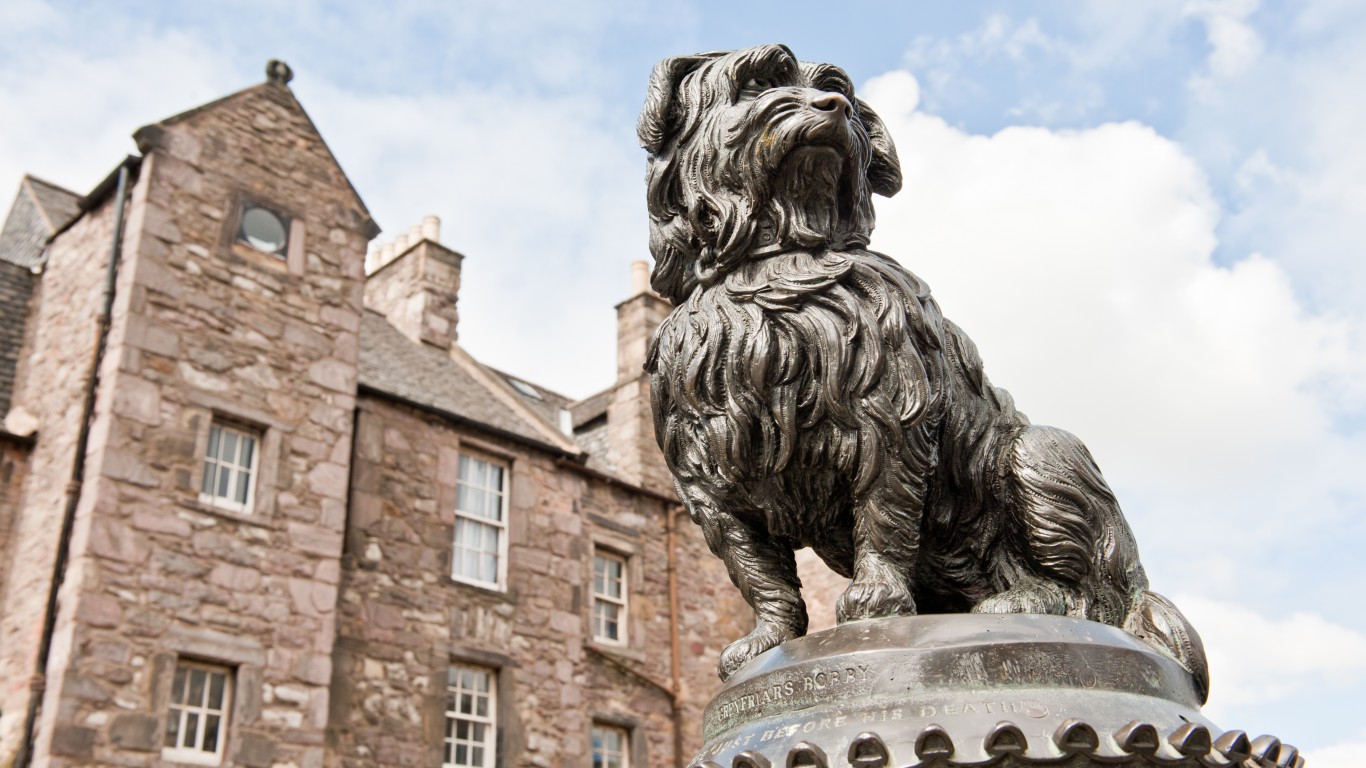
Greyfriars Bobby
In his early years, Bobby accompanied his owner on his rounds as a night watchman on the Edinburgh police force. At a glance the little Skye Terrier may not have looked like much of a watchdog, but what he lacked in size he made up for in loyalty. After his owner’s death, Bobby kept watch at his grave in Greyfriars Kirkyard for 14 years; he was fed and cared for by local people till the end of his days. A monument was erected in his honor across from the cemetery where Bobby held his faithful vigil. Some historians dispute this account and claim the whole story was a hoax to draw tourists in. Whatever the truth is, Bobby is still a very famous dog.
[in-text-ad-2]
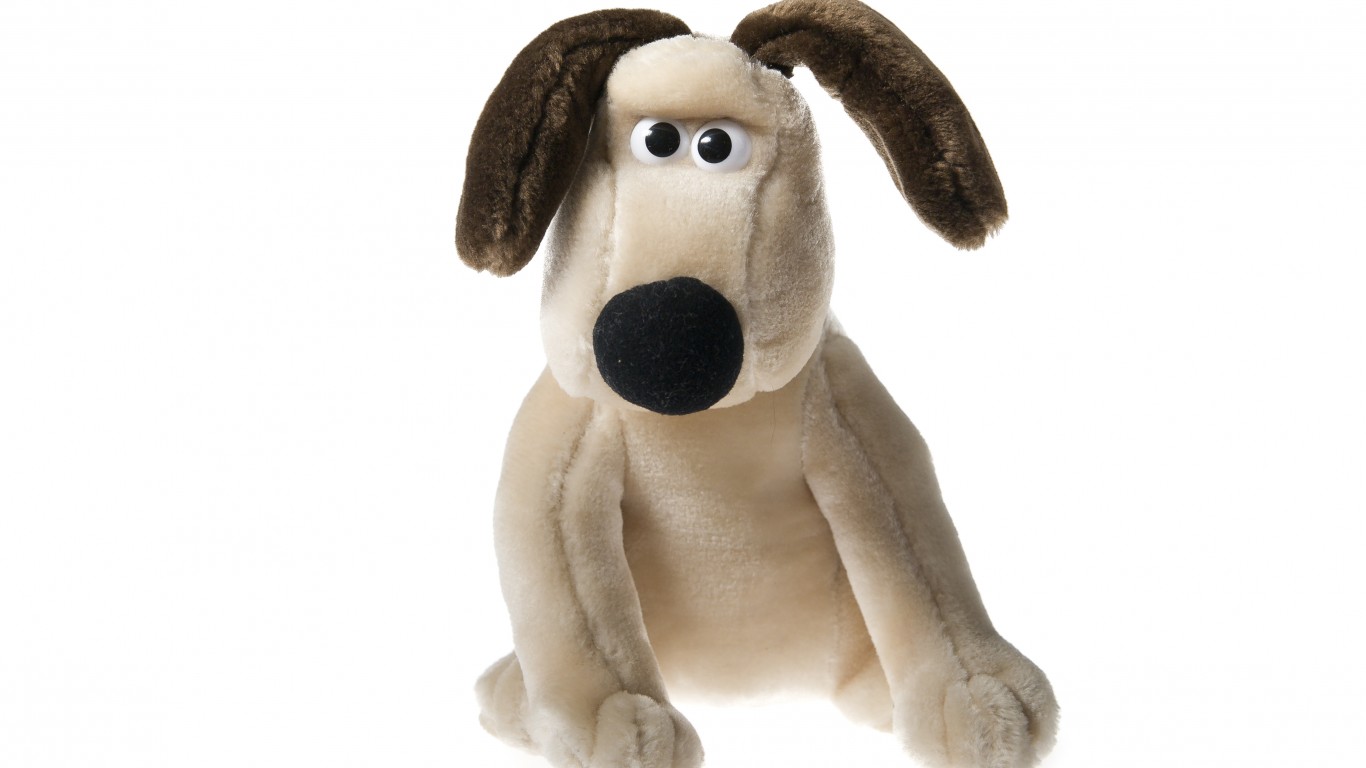
Gromit
Has there ever been a Claymation creation cuter than Gromit the dog? The four-legged partner in such Wallace and Gromit adventures as “The Wrong Trousers,” “The Curse of the Were-Rabbit” and “A Grand Day Out,” Gromit traveled to the moon, saw through the machinations of an evil penguin and survived encounters with Wallace’s inventions. If you’ve ever suspected that most pets are smarter than their owners, check out Gromit’s interactions with Wallace for confirmation.
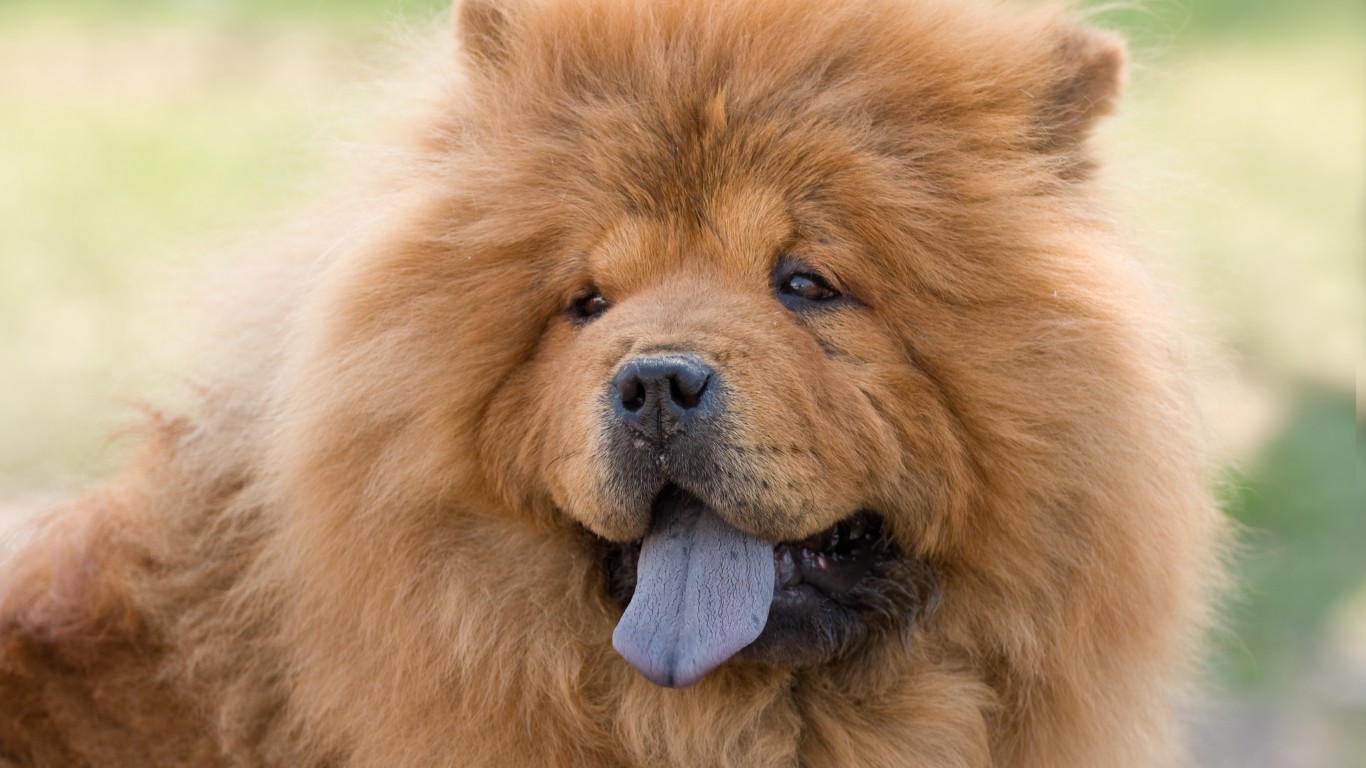
Jofi
Sigmund Freud, the father of psychoanalysis, owned several chow chows in his later years. Jofi was a particular favorite, and was his constant companion for seven years. Jofi spent time in her master’s office while he treated patients; she got so used to the routine that she would get up, yawn and walk to the door, signaling the end of a 50-minute session. Freud believed that Jofi calmed his patients, and that they were more forthcoming while she was near at hand.
[in-text-ad]
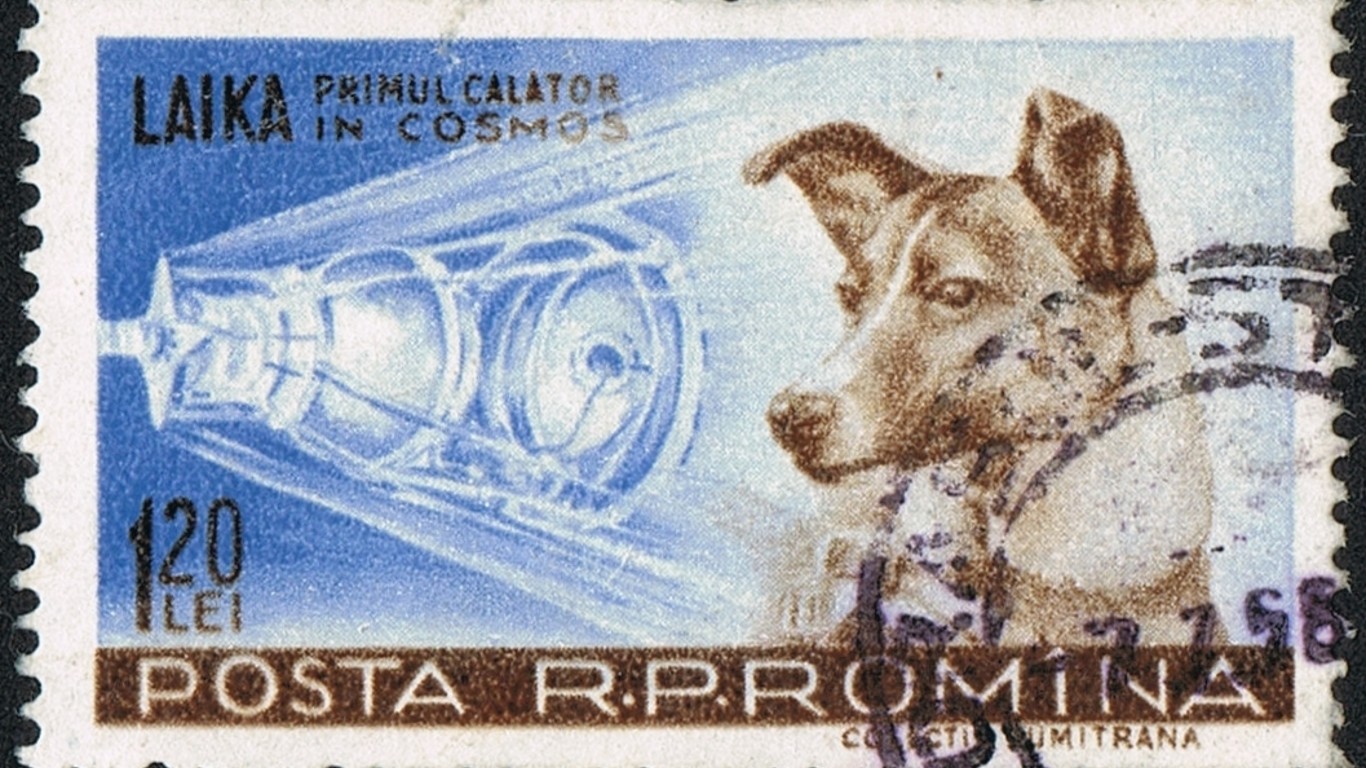
Laika
In 1957 with the Soviet launch of Sputnik 2, Laika, a mixed breed stray from the streets of Moscow, became the first animal to orbit the Earth. Dubbed “Muttnik” by the press, Laika entered the public imagination, but did not survive the mission. Her memory has been preserved by a monument in Russia, as well as a postage stamp, books and poems.
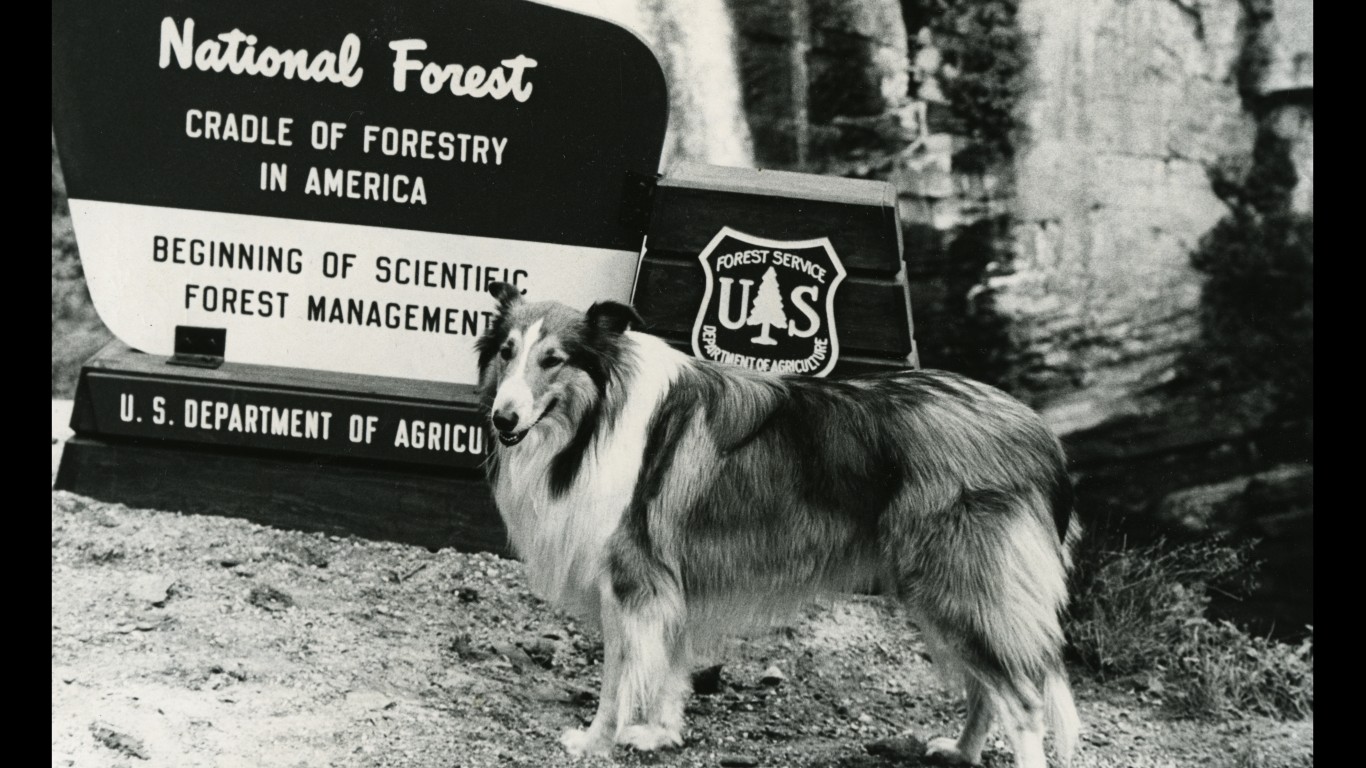
Lassie
The ever-popular saga of this faithful Collie originated with a short story by Eric Knight that appeared in The Saturday Evening Post and became the basis for the 1940 novel “Lassie Come-Home.” The book was made into a movie in 1943, starring a handsome Rough Collie named Pal, who earned more than twice as much for his efforts as his human co-star Elizabeth Taylor. Pal and his successors appeared in several other Lassie films, and a long-running TV series; their work is recognized with a star on Hollywood’s Walk of Fame.
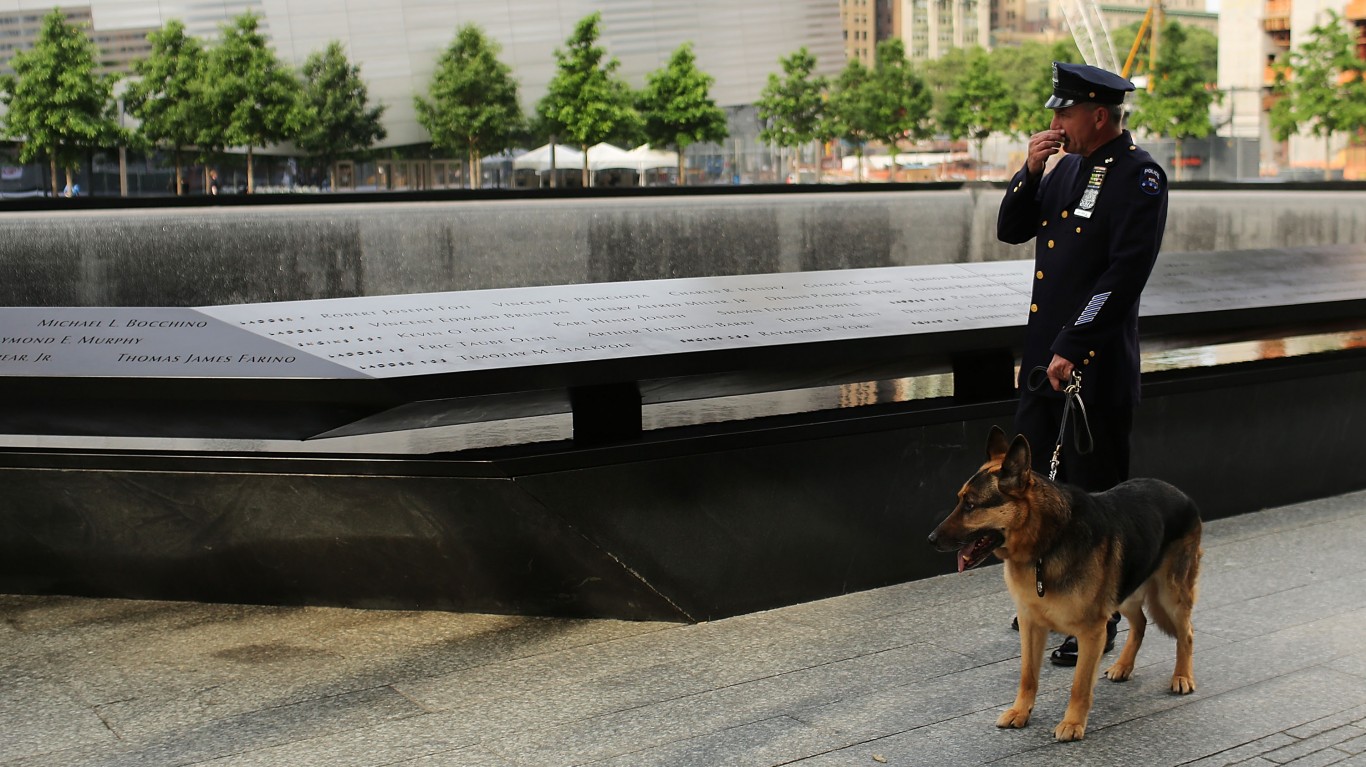
9/11 Rescue Dogs
After the terrorist attacks on the World Trade Center on September 11, 2001, more than 300 dogs served at ground zero, in the largest canine deployment in history. Among the first on the scene was Apollo, a member of the New York Police Department’s K-9 unit, who was on site just 15 minutes after the towers collapsed. Bretagne, the last-known survivor of this canine squad, put in 12-hour days at ground zero for two weeks, and years later was deployed to New Orleans in the wake of Hurricane Katrina.
[in-text-ad-2]
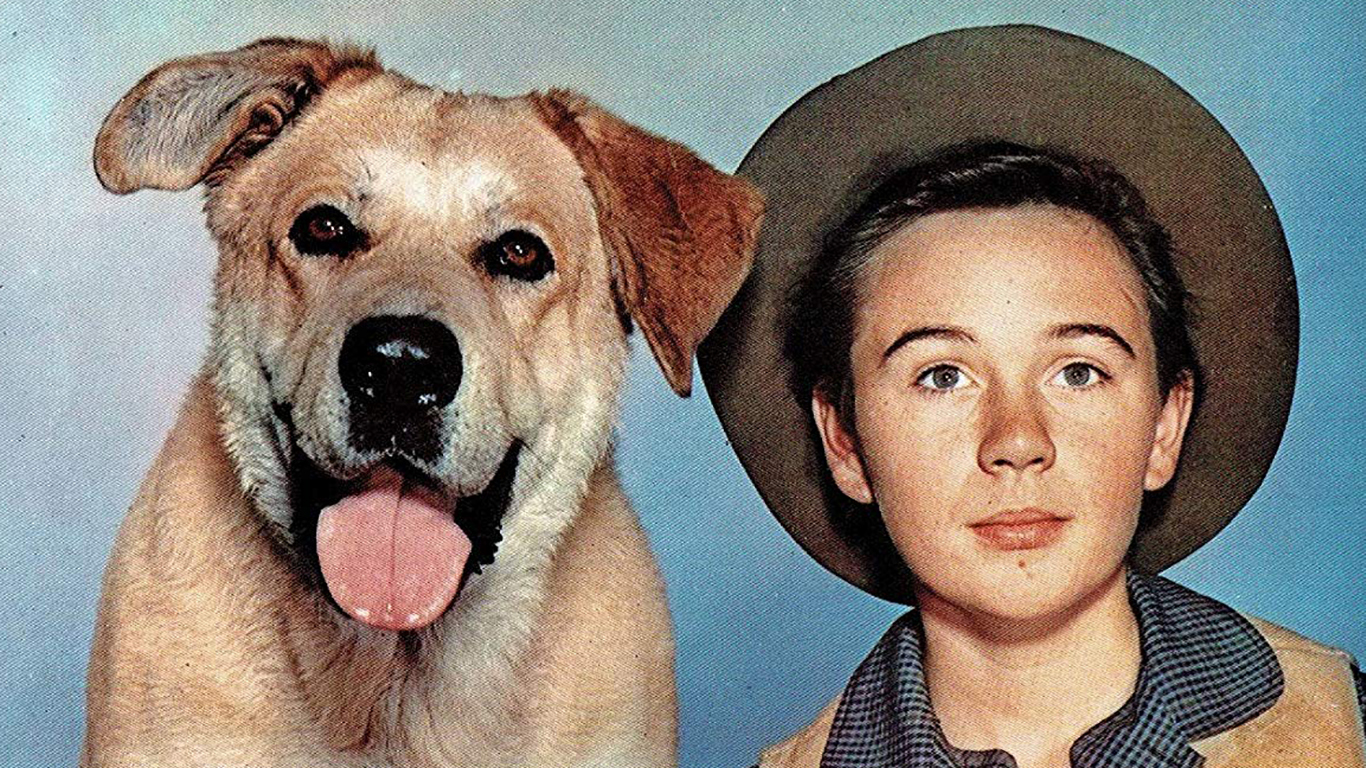
Old Yeller
If you’re looking for one more good reason to adopt a dog, just consider that the one you choose may have a brilliant future. The star of the beloved movie “Old Yeller” was a stray named Spike, who went from homeless to Hollywood. The career of this famous pooch had legs – he appeared in a variety of movies and TV shows, including “Dog of Flanders,” and the Sam Peckinpah-creation “The Westerner.”
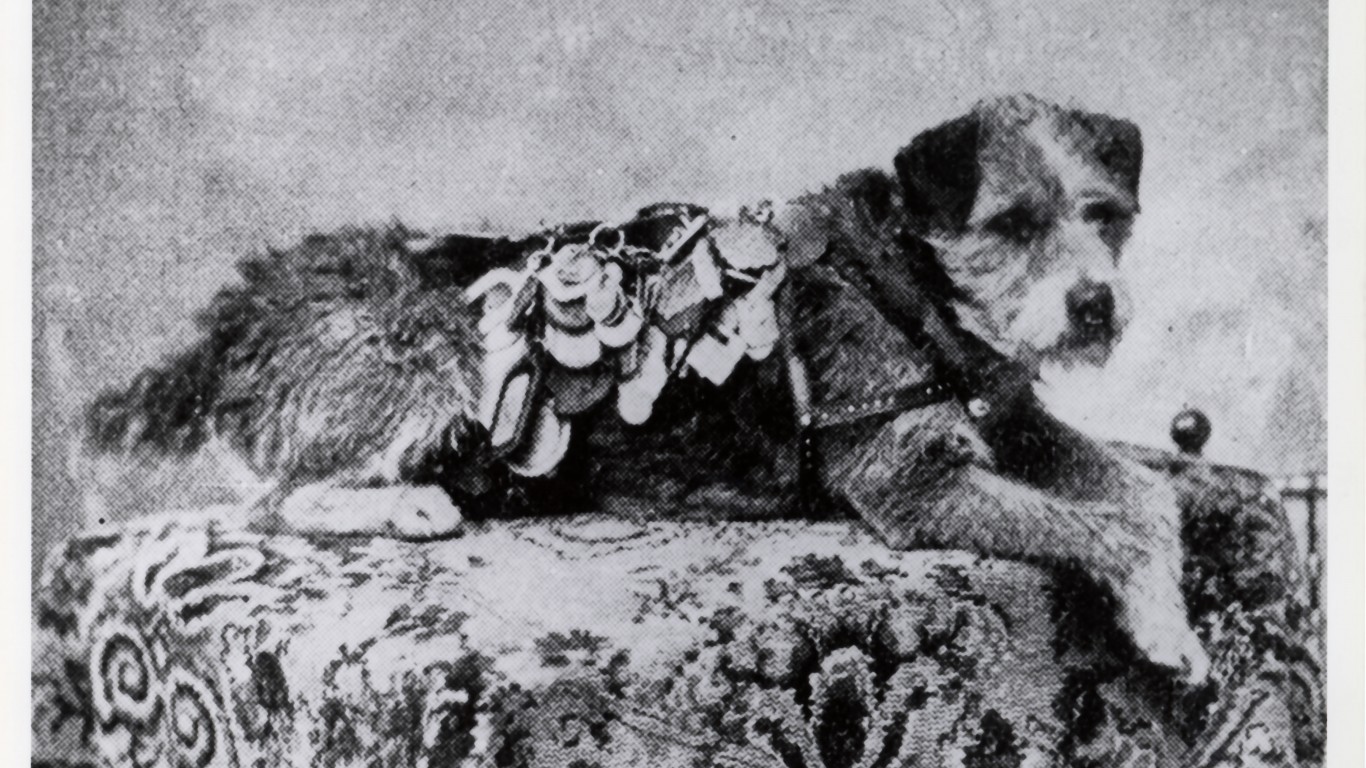
Owney
This charming mutt traveled anywhere a stamp could take him, accompanying the U.S. mail on wagons, railroad cars and aboard ships. An unofficial mascot of the U.S. Postal Service, toward the end of the 19th century Owney crossed the country with mail trains multiple times, and went around the world on steamships. He was considered a good luck charm by postal workers, who awarded him medals and tags documenting his journeys. Appropriately enough, Owney has appeared on a postage stamp, and is the star of an exhibition at the Smithsonian Postal Museum in Washington, DC.
[in-text-ad]
Queen Elizabeth’s corgis
The British monarch received her first corgi in 1933, and has owned more than 30 in the decades since then. They were by her side in countless photos, from royal portraits to casual snaps to the cover of Vanity Fair. They accompanied Queen Elizabeth II on her travels – including her honeymoon – and have been sculpted into official statues and embossed onto commemorative coins. One of the royal corgis even appeared with Daniel Craig in the James Bond opener to the 2012 London Olympics. Though the last of the queen’s corgis died in 2018, they won’t be forgotten. A new animated film, “The Queen’s Corgi,” is slated for release in July.
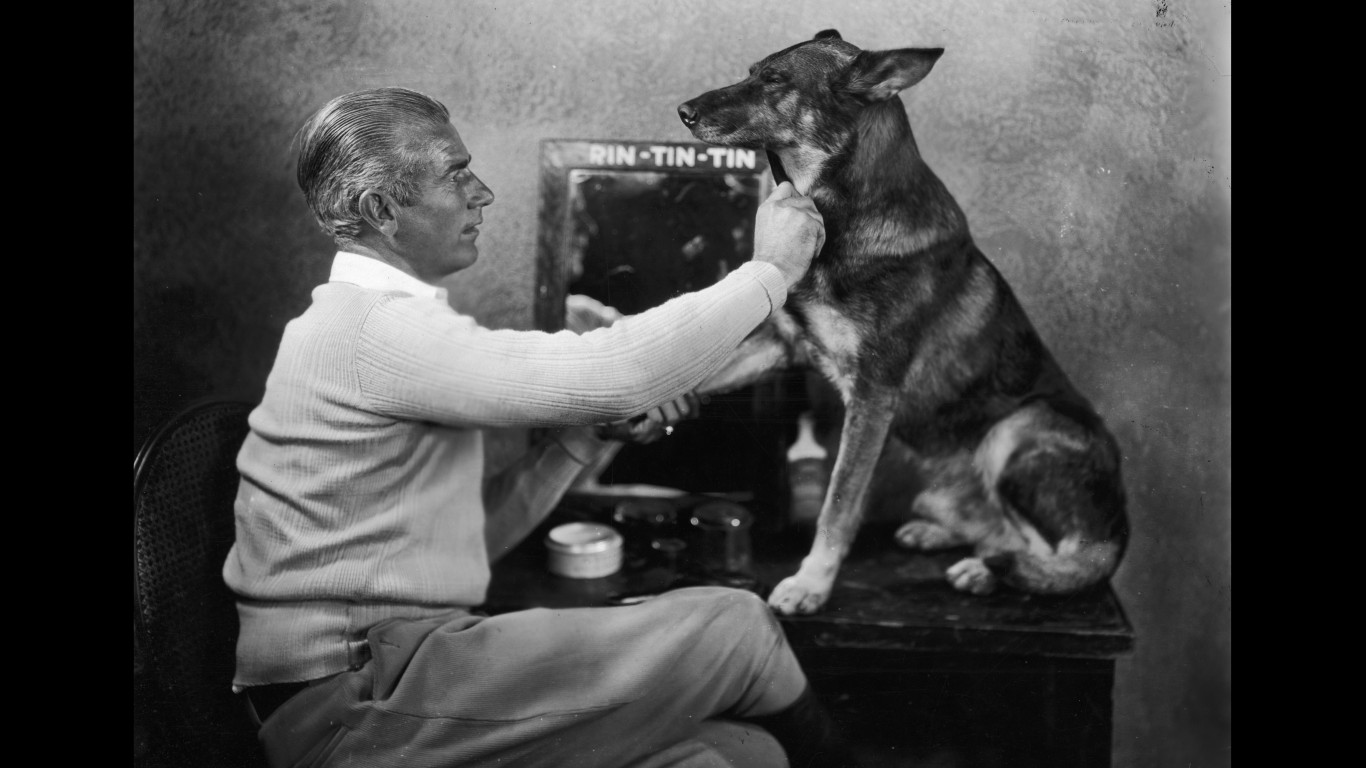
Rin Tin Tin
Here’s a film star whose intriguing back story inspired a bio-pic, “Finding Rin Tin Tin,” and a book, “Rin Tin Tin, The Life and the Legend,” by Susan Orlean. After a World War I battle in 1918, an American soldier found the pup, whom he later brought home to Los Angeles. The owner, Lee Duncan, certain that his pet had a future in films, wrote a screenplay and went knocking on studio doors – literally – until he found at taker at Warner Brothers. Known as “The dog who saved Warner Brothers,” the German shepherd and his descendants went on to star in movies and a long-running TV series. Rin Tin Tin is one of three dogs to rate a star on the Hollywood Walk of Fame

Scooby-Doo
The cartoon Great Dane made his small-screen debut in 1969, and is still going strong in the comedic mystery-solving business. The 2002 feature movie “Scooby-Doo” is among the top-earning dog movies of all time, grossing more than $181 million. He even has a postage stamp. The stamp, part of the character’s Doo Good social responsibility initiative, aims to “provide young people with tools and activities geared toward enriching the environment.”
[in-text-ad-2]
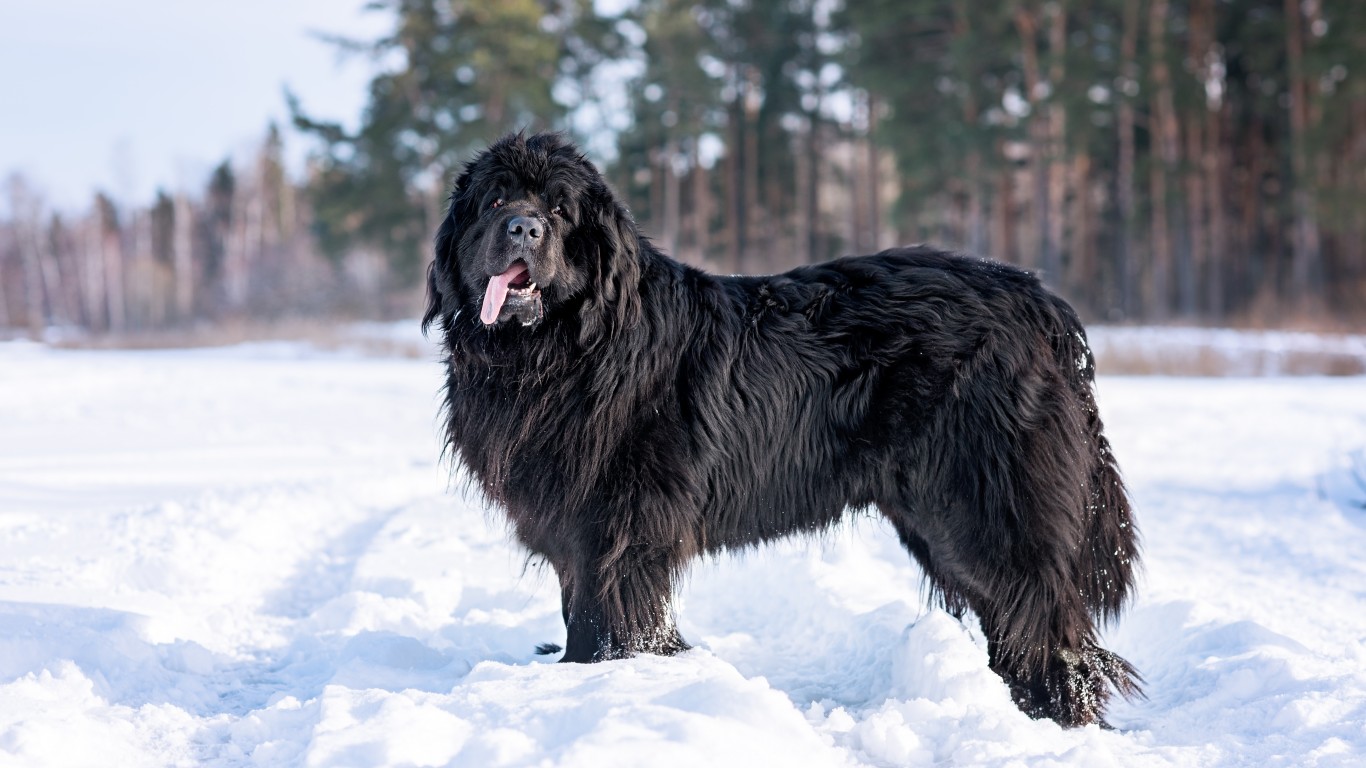
Sergeant Gander
A Newfoundland dog who was the mascot of the Royal Rifles of Canada, Gander served as a grenade sniffer during World War II. He was killed in action during the battle of Hong Kong, protecting a group of wounded soldiers, by carrying a grenade away from them toward enemy lines. The Gander Heritage Memorial Park in Newfoundland is home to a monument honoring Gander, who was also awarded the PDSA Dickin Medal, the highest award any animal can receive and the animal equivalent to the Victoria Cross.

Sgt. Stubby
Said to be America’s most decorated war dog, this mixed-breed regimental mascot is credited with saving numerous lives while in the trenches in France with U.S. troops during World War I. Stubby was exposed to gas during his first battle, and thereafter could sense when the troops were under chemical attack and would alert the soldiers to put on their gas masks; in fact, the dog was fitted with his own specially crafted mask. Sgt. Stubby survived 17 battles, and later met three U.S. presidents and had a second career as the mascot of the Georgetown Hoyas.
[in-text-ad]
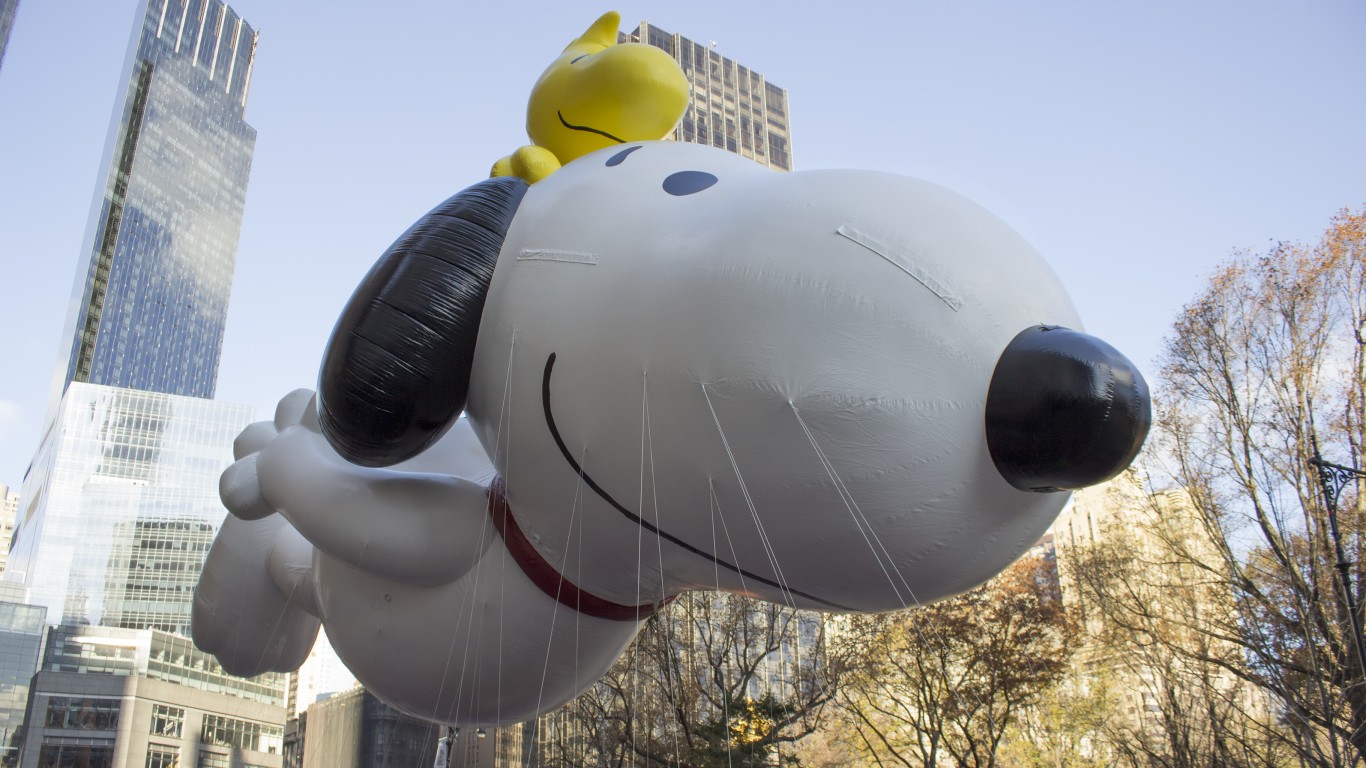
Snoopy
Did Snoopy invent the happy dance? The beloved cartoon character made his first appearance in a Peanuts comic strip in 1950 and quickly worked his way into readers’ hearts and imaginations. The beagle is known for having a vivid fantasy life – his alter egos included jazz saxophonist Joe Cool, a World War I flying ace, and a soldier in the French Foreign Legion – and he typically seemed far more joyful and less neurotic than his human counterparts. Snoopy has been portrayed in TV specials, feature movies, and the Broadway musical “You’re a Good Man, Charlie Brown.” There’s even a Snoopy museum in Tokyo, and a NASA award named in his honor.
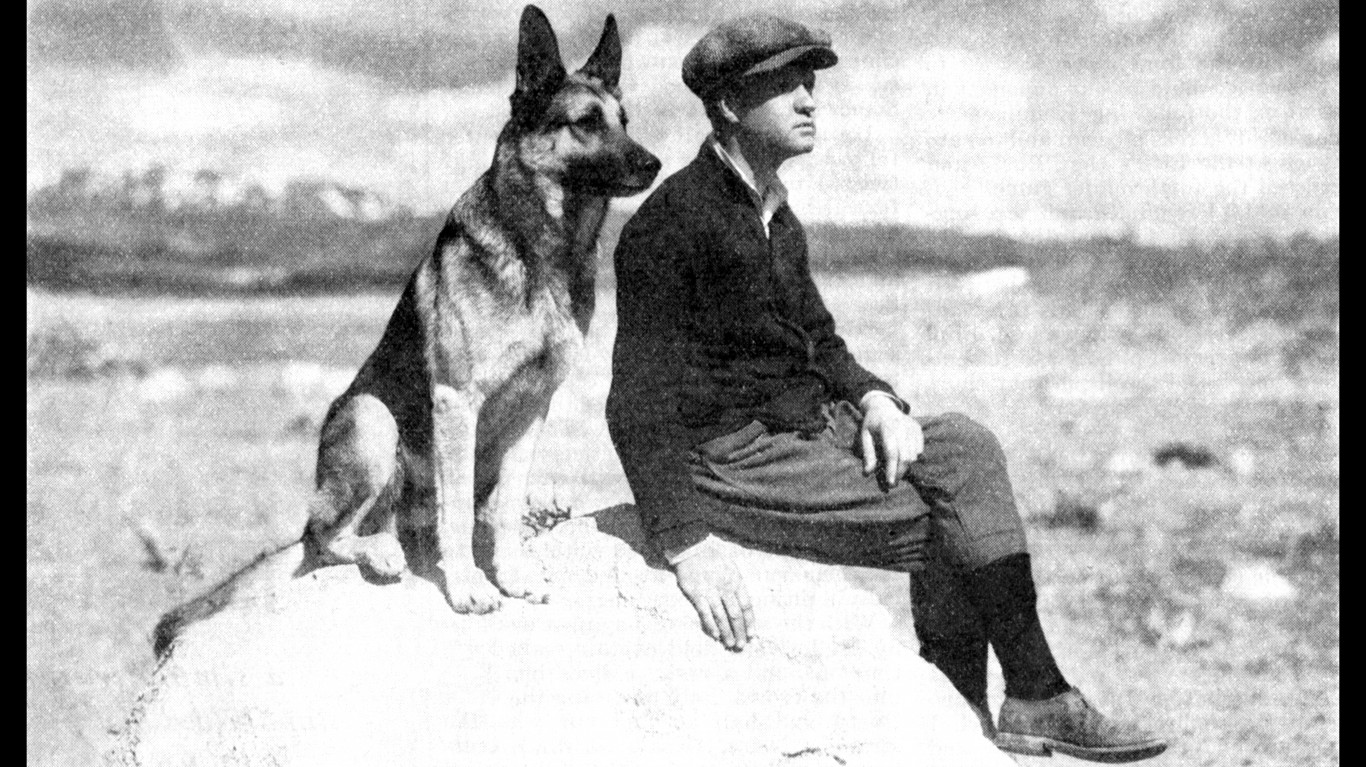
Strongheart
Credited with helping to popularize the German Shepherd breed, Strongheart’s life story sounds like something out of a movie, though his heroic exploits weren’t strictly fictional. The German-born animal was trained as a police dog in Berlin and served bravely with the German Red Cross in World War I before migrating to the U.S., and straight to Hollywood. Born Etzel Von Oeringen, he was dubbed Strongheart by a movie studio publicity department that deemed his name too much of a mouthful for a screen star. And a star he did become: His performances in silent films including “White Fang” and “The Silent Call” earned Strongheart a star on the Hollywood Walk of Fame.
Toto
Toto, Dorothy’s companion in the 1939 classic “The Wizard of Oz,” was played by Terry, a Cairn Terrier. The dog’s $125 per week salary ($6,500 a year) for the film was a princely sum, considering that the average annual income for that year was $1,368. In addition to appearing with Judy Garland in Wizard, Terry shared the screen with some of the top stars of the day, including Shirley Temple (“Bright Eyes”), and Spencer Tracy and Hedy Lamarr (“Tortilla Flat”). Toto has proved to have an enduring hold on our imaginations, as evidenced by a successful 2011 crowd-funding campaign to provide a memorial at Terry’s final resting place at Hollywood Forever Cemetery, and an upcoming animated film from Warner Brothers that will revisit the “Wizard of Oz” from Toto’s perspective.
[in-text-ad-2]
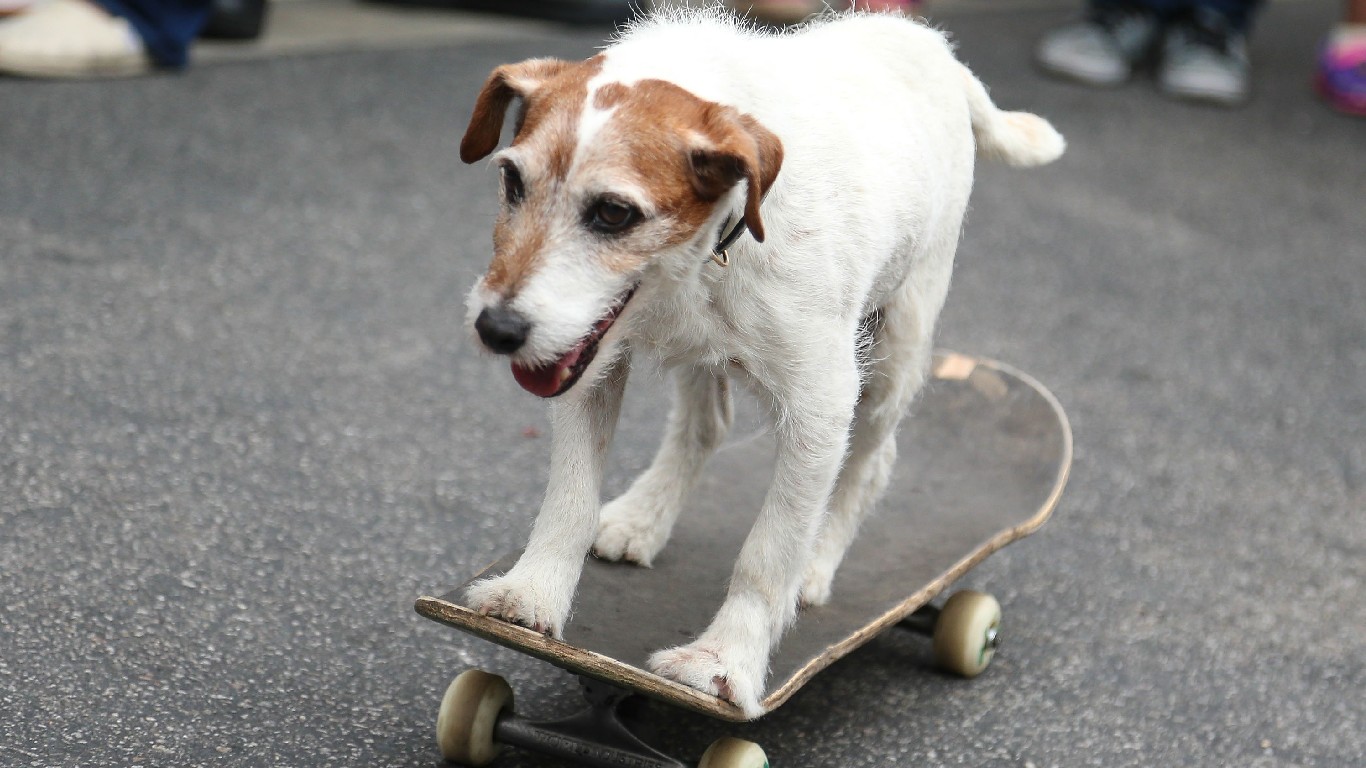
Uggie
Uggie, a charm-laden Jack Russell Terrier, transcended his humble beginnings as a shelter pup to find fame and fortune on the silver screen. He starred in 2011’s “The Artist,” delivering a performance that fueled discussions as to whether animals should be granted Oscars. The movie landed five Oscars, making it the first silent film to win an Academy Award since 1929. Uggie stole countless hearts with his antics at the awards ceremony, and in 2012 left his mark with paw prints in wet cement outside Grauman’s Chinese Theater, the first dog to do so.
Cash Back Credit Cards Have Never Been This Good
Credit card companies are at war, handing out free rewards and benefits to win the best customers. A good cash back card can be worth thousands of dollars a year in free money, not to mention other perks like travel, insurance, and access to fancy lounges. See our top picks for the best credit cards today. You won’t want to miss some of these offers.
Flywheel Publishing has partnered with CardRatings for our coverage of credit card products. Flywheel Publishing and CardRatings may receive a commission from card issuers.
Thank you for reading! Have some feedback for us?
Contact the 24/7 Wall St. editorial team.
 24/7 Wall St.
24/7 Wall St.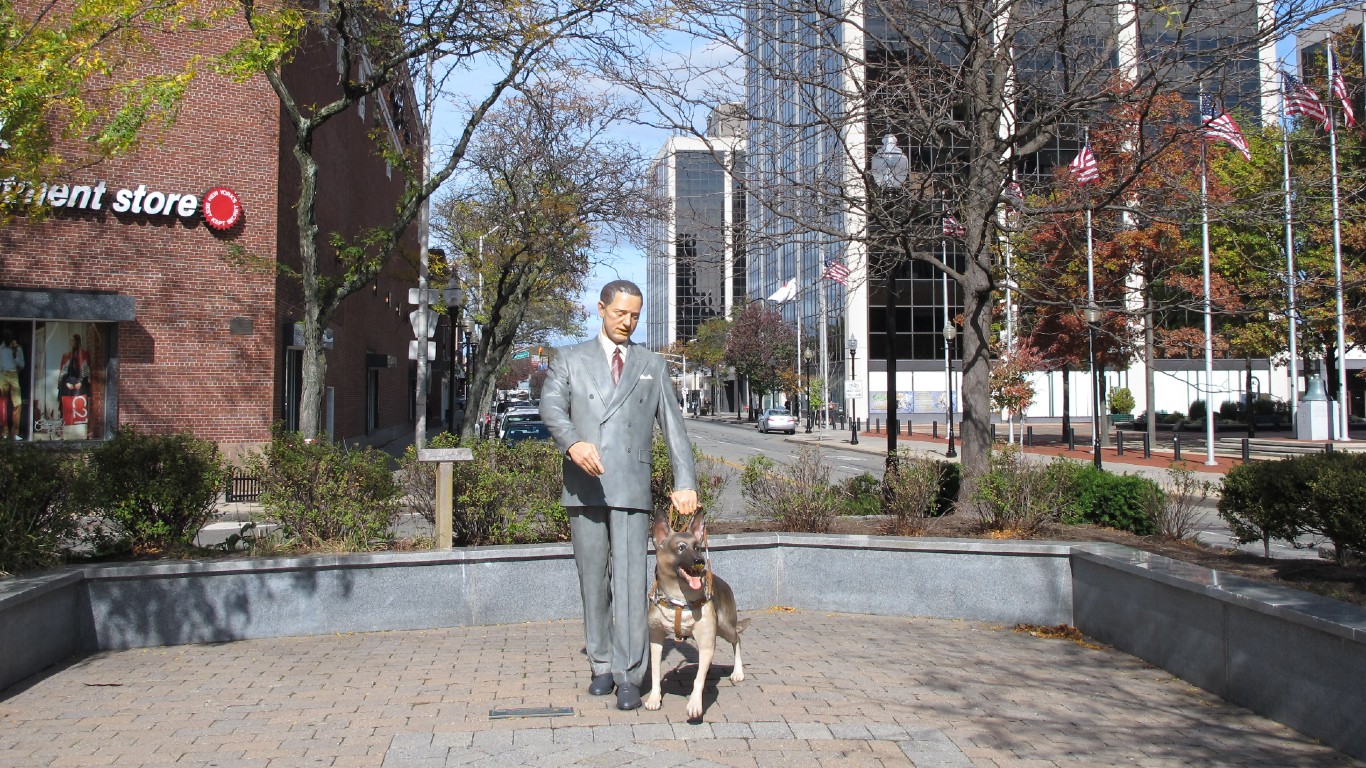
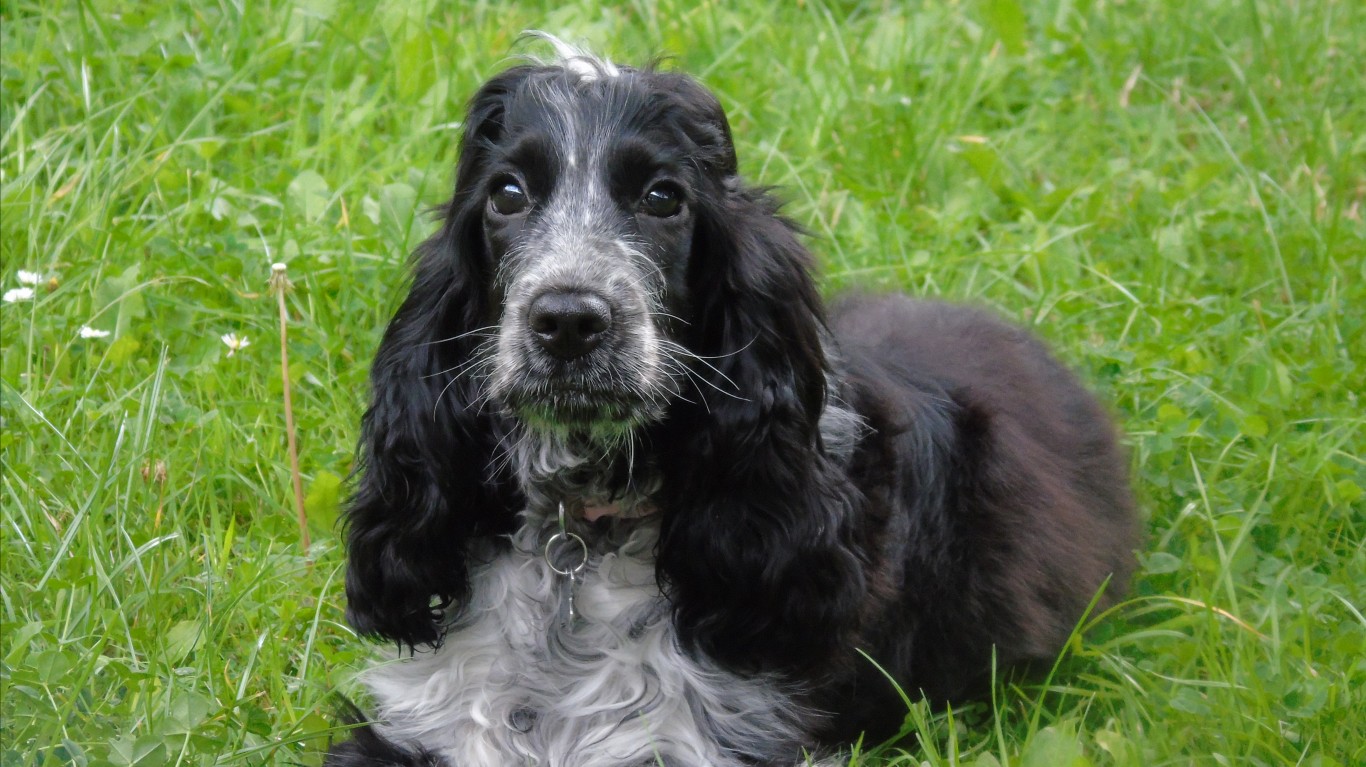
 24/7 Wall St.
24/7 Wall St.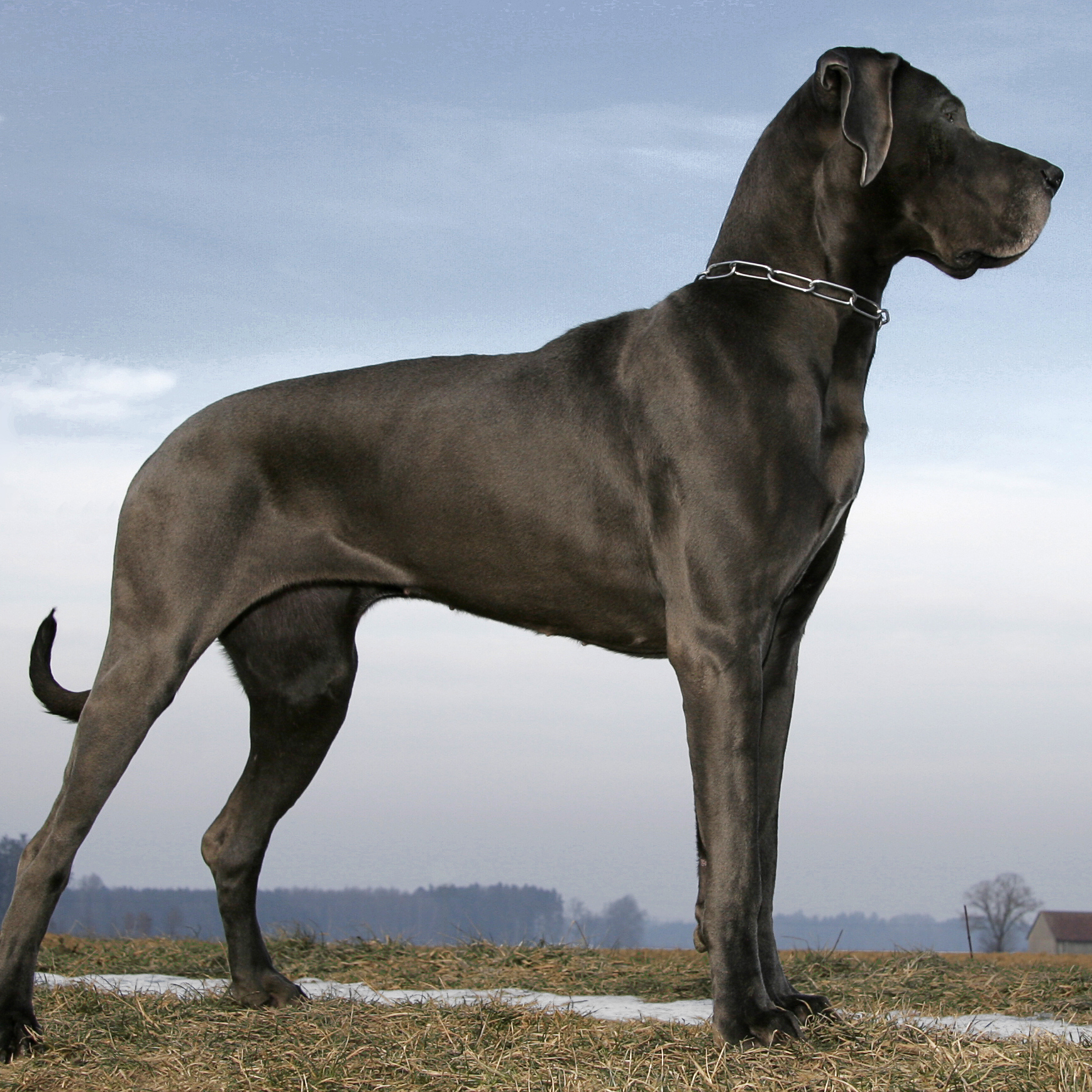 24/7 Wall St.
24/7 Wall St.